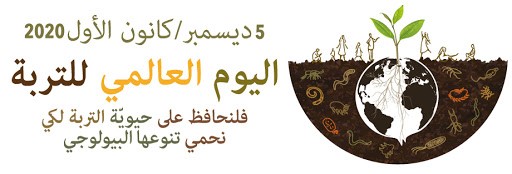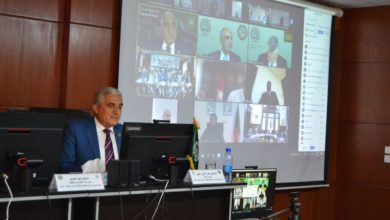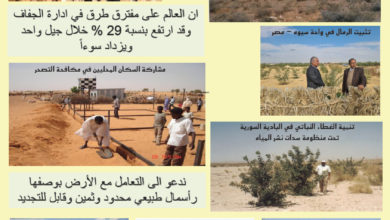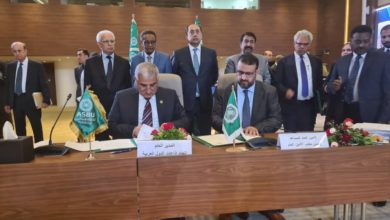World Soil Day 5 December
“Keep soil alive, protect soil biodiversity.”
The Arab Center for the Studies of Arid Zones and Drylands ACSAD is participating in celebrating the“World Soil Day,” which is organized this year under the campaign of “keep the soil alive, protect soil biodiversity”; in line with its tasks and work programs approved by its General Assembly (Council of Arab Ministers of Agriculture); on the conservation of ecosystems, the care and development of natural resources, and rationalizing their investment to continue giving and producing and ensuring human life needs; believing that the soil resource is one of the most important elements of agricultural production as it is considered the main cradle of all plant species that secure food and clothing to humans from the cradle to the grave, and as it is the mother habitat for the existents on its land and in its interior.
The event is organized by the Global soil Partnership Program to raise awareness and increase knowledge about how to preserve this natural resource that God has gifted us, protecting it from risks and degradation when used for agricultural purposes. Especially as all expectations indicate that food demand will increase by 70% by 2050, this situation will impose increased competition for soil resources that will face a fundamental challenge represented by possibility of increasing contribution to food production and responding to anticipated impacts of drought and climate change.
Scientific research and applied projects related to soil protection and improvement its properties are among the main interests of ACSAD organization with the aim of maintaining it, contributing effectively to improving its specifications and increasing its productivity, and supporting efforts to achieve food security in the Arab region, thus, ACSAD creating a particular department in its organizational structure, for soil and land studies. It adopted an integrated approach that addresses all physical, biological, social, and economic aspects for soil uses, promoting cooperation among the institutions concerned in the fields of environmental protection and the conservation of land and water resources. It has established a program to study and evaluate desertification cases for reducing land degradation, works on neutralizing the effects of land degradation and restores the degraded ones, and implementing pilot projects in this field, as well as contributing to training, capacity-building, and technology transfer, and to follow up international activities, including the World soil Day, and the international environmental conventions to combat desertification, and biodiversity. Through ACSAD implementation of many soil surveying and land classification projects, combating desertification, rehabilitating degraded land, improving soil fertility, and targeting its investment, it has generated accumulated experience and learned lessons so, based on which it develops its soil and land resource strategy, the most important components of which are the following:
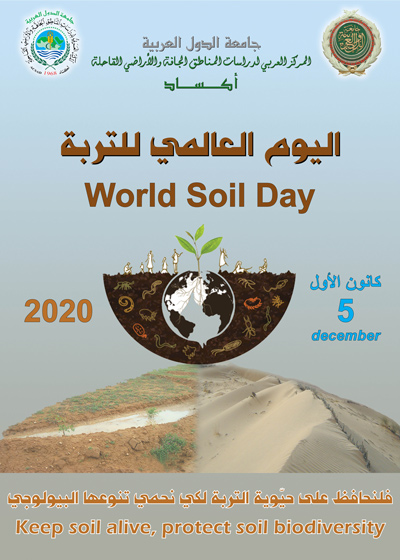
*- The adoption of an integrated approach to sustainable management and conservation of soil resources.
*- Develop strategies and priorities of soil resource to take care and improve their management within sustainable development policies.
*- Development of regional cooperation in the field of monitoring land degradation and early warning of desertification processes, adaptation to climate change, and mitigation of drought effects.
*- Developing applied scientific research capabilities in the field of soil, water, and vegetation.
*- Enhanced cooperation among institutions concerned with soil and other natural resource issues.
*- Enhanced participation of local people in the sustainable development of soil resources.
*- Strengthen mechanisms for mobilizing the sources of funding needed to improve soil resource management.
*- Increasing consultation and coordination with Arab regional and international organizations on natural resource investment and rural development issues.
It should be noted that exerted efforts to limit soil deterioration, although important, continue, especially in arid and semi-arid regions. Their negative environmental, economic, and social consequences still exist. This confirms the need to increase public awareness of this problem on various occasions, including this important occasion,the need to work with an integrated approach to find the appropriate solutions, to follow a long-term strategy for dealing correctly with soil and land resources, and to integrate this strategy with outreach strategies to reach sustainable development goals (SDGs) and national programs to neutralize land degradation.
God bless us
Dr. Nasr Edin Obaid
The Director-General
